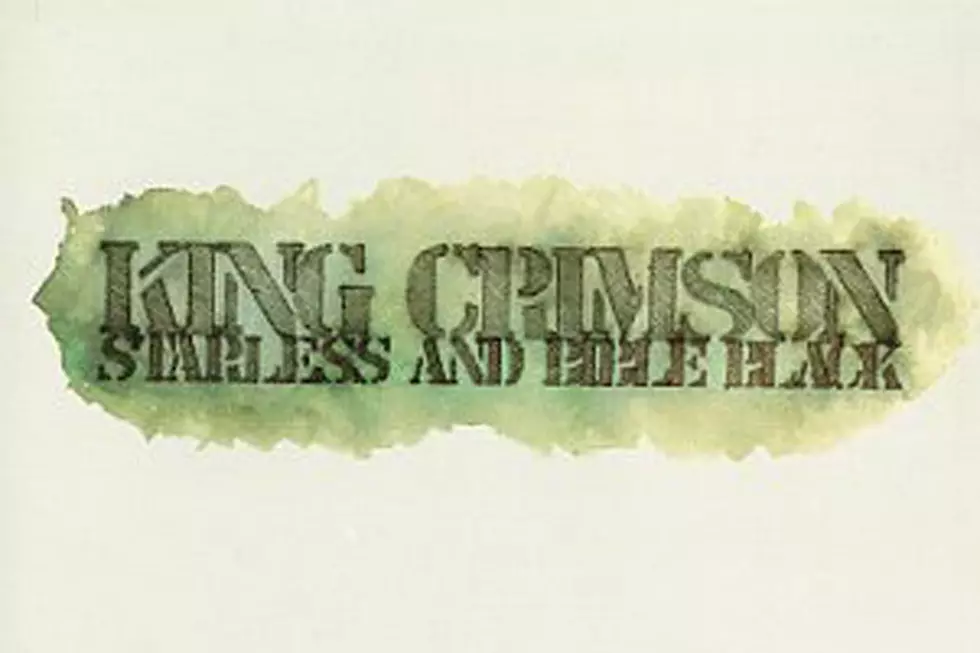 Frank Zappa and the Mothers of Invention, along with King Crimson, are my two favorite bands from the "prog rock" school of making things busy, although my appreciation of both bands is that they are both outliers from the form. Before anyone knew it, there seemed to be a dozen bands that sounded like Yes, ELP, and Genesis, so many of them with similar riffs, oddly regimented time signatures, fantasy, sci-fi, or cosmic muffin levels of grandiose lyric baiting. I admit the truly committed prog partisans could tell the difference, as could I in most blindfold tests, but the real issue was precisely the point of all that repetition of effort.
Frank Zappa and the Mothers of Invention, along with King Crimson, are my two favorite bands from the "prog rock" school of making things busy, although my appreciation of both bands is that they are both outliers from the form. Before anyone knew it, there seemed to be a dozen bands that sounded like Yes, ELP, and Genesis, so many of them with similar riffs, oddly regimented time signatures, fantasy, sci-fi, or cosmic muffin levels of grandiose lyric baiting. I admit the truly committed prog partisans could tell the difference, as could I in most blindfold tests, but the real issue was precisely the point of all that repetition of effort. The answer was clear: sales of records and tickets, no less than the disco movement. It wasn't all mercenary, as it's unlikely anyone begins to play music of any kind without the love of making instruments produce sweet sounds. Still, the idea was that prog rock was selling and that despite the protests that maintain that it was a new art form, or a natural expression from musicians who'd grown up listening to the refined stuff, which it was in both cases, choosing to be in a prog band was a commercial move, not an artistic one. Zappa and KC, though, had other things in mind, a certain kind of monomania that made the music morphing, argumentative, diverse, and truly "out there" in both bands, than anything else. Weasels Rip my Flesh is my favorite Mothers/Zappa release simply because it pretty highlights the leader's astounding range, from gritty atonal classicism, free-jazz cacophony, old-school rhythm and blues, electronic skroinksterism, and a good amount of Zappa's flying dagger guitar improvisation.
It's a resume album, you might say, a release of what had not made it yet to the album release, outtakes they used to call them, music from both studio sessions and live dates sublimely edited together in such a way that it becomes a jaw-dropping realization that the styles and moods this record masterfully presents, the crankiest avant-garde experimentation coexisting with humdinger fanfares, an obstacle course of rapid and bizarre meter changes, the sustained scream of a deranged arrangement for reed instruments, you begin, perhaps, to appreciate the genius Frank Zappa was. Prelude to the Afternoon of a Sexually Aroused Gas Mask, Eric Dolphy Memorial Barbecue, My Guitar Wants to Kill Your Mama, Oh No--these titles provide a good idea as to the peculiar landscape that is Zappa's imagination, which is satirical, vulgar, entirely surreal using the commodities of consumer capitalism rather than the convenient mythos of psychology to poke sharp sick into the vulnerable and obese sides of our collective American fetishism for gadgets, fads, and trends. An admirable facet of Zappa's work as a librettist is that he has no interest in creating poetic/philosophical/spiritual constructs that operate as Fire Exits for the consumer who wants a safe space for his psyche to believe, however fleetingly, that everything is okay and that he's doing just fine.
It's a resume album, you might say, a release of what had not made it yet to the album release, outtakes they used to call them, music from both studio sessions and live dates sublimely edited together in such a way that it becomes a jaw-dropping realization that the styles and moods this record masterfully presents, the crankiest avant-garde experimentation coexisting with humdinger fanfares, an obstacle course of rapid and bizarre meter changes, the sustained scream of a deranged arrangement for reed instruments, you begin, perhaps, to appreciate the genius Frank Zappa was. Prelude to the Afternoon of a Sexually Aroused Gas Mask, Eric Dolphy Memorial Barbecue, My Guitar Wants to Kill Your Mama, Oh No--these titles provide a good idea as to the peculiar landscape that is Zappa's imagination, which is satirical, vulgar, entirely surreal using the commodities of consumer capitalism rather than the convenient mythos of psychology to poke sharp sick into the vulnerable and obese sides of our collective American fetishism for gadgets, fads, and trends. An admirable facet of Zappa's work as a librettist is that he has no interest in creating poetic/philosophical/spiritual constructs that operate as Fire Exits for the consumer who wants a safe space for his psyche to believe, however fleetingly, that everything is okay and that he's doing just fine.
No such luck, as Brother Zappa distorts the chaos, you're already in and aware of and makes it his goal to give you the shock of recognition. That is, what am I laughing at? With the disconcerting variety and collision-course eclecticism the Mothers of Invention so brilliantly maintained, it would seem to have been Zappa's goal to shame a few folks in his audience, at least, to recognize the softness of their thinking, turn off the TV, and get a library card.








:format(jpeg):mode_rgb():quality(40)/discogs-images/R-1679637-1236501002.jpeg.jpg)





